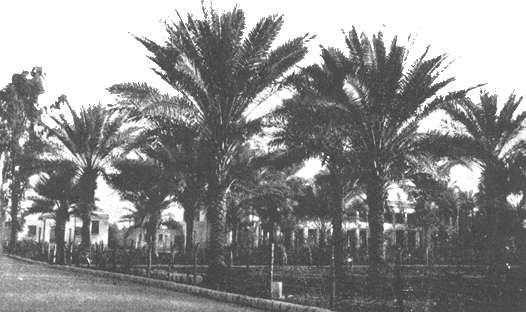The views expressed in our content reflect individual perspectives and do not represent the authoritative views of the Baha'i Faith.
Unable to destroy Baha’u’llah, the Persian consul stepped up his efforts to have him removed from Baghdad and away from the Iranian frontier. A period of incessant activity ensued, during which the consul and his superiors spread infamous tales about Baha’u’llah and the Babis to the Ottoman authorities. At last a message arrived from the grand vizier–the chief minister of the Ottoman government, residing in Constantinople–with instructions for the governor. The governor requested a meeting with Baha’u’llah.
News of the upcoming meeting caused a flurry of rumors and hearsay. Some speculated that Baha’u’llah would refuse to meet with the governor; others thought that he and all of the Babis would be handed over to the Persian authorities; still others thought that they would all be drowned in the Tigris River.
Baha’u’llah agreed to meet with a deputy who conveyed the news from the grand vizier—an invitation for Baha’u’llah to proceed to the capital city of Constantinople (today known as Istanbul, Turkey). The language of the summons was courteous.
As it turned out, the governor of Baghdad had known of the invitation for several months. He had developed a deep admiration for Baha’u’llah and could not bring himself to deliver the news at first. The grand vizier sent five successive commands. Only after the fifth did the governor accede to the order.
At first it appeared that Baha’u’llah’s adversaries had at last succeeded in inflicting a humiliating defeat. They imagined an ignominious banishment from Baghdad, but this turned out to be far from what actually happened. The news of Baha’u’llah’s impending departure caused immense distress among all classes of people, whose public gestures of support for Baha’u’llah made clear that they could not bear the thought of his absence.
The governor gave Baha’u’llah a sum of money to be used on the journey, an amount sufficient for himself, his relatives, and a number of attendants. Baha’u’llah gave the entire sum to charity. The governor also offered a reception for Baha’u’llah’s brother and eldest son, whom Baha’u’llah sent to meet with the governor. The lavishness of that occasion demonstrated the esteem that Baha’u’llah enjoyed among the highest circles.
In the days before his final departure from Baghdad, between April 21st and May 2nd, 1863, Baha’u’llah stayed in a large garden on the east bank of the Tigris River. He named it the Garden of Paradise (Ridvan in Arabic), and he received guests from every walk of life who came from the city to pay their respects and to beg him to stay. He offered what consolation he could, but firmly insisted that the time had come for him to leave. The governor himself came to beg Baha’u’llah’s forgiveness, asking what service he might perform for him. Noting the tumult that had seized the inhabitants of the city, the governor remarked to Baha’u’llah, “‘Formerly they insisted upon your departure. Now, however, they are even more insistent that you should remain.’”
Baha’u’llah stayed in the garden for twelve days before finally departing Baghdad.
The Babis were grief-stricken, for only a handful would be allowed to accompany Baha’u’llah and his family to Constantinople. Those who were to remain behind came to say their farewells. Through it all, in spite of the uncertain fate that awaited him, Baha’u’llah remained tranquil. Once again we turn to Nabil, who described those days:
Every day, ere the hour of dawn, the gardeners would pick the roses which lined the four avenues of the garden, and would pile them in the center of the floor of His blessed tent. So great would be the heap that when His companions gathered to drink their morning tea in his presence, they would be unable to see each other across it. All these roses Baha’u’llah would, with his own hands, entrust to those whom he dismissed from his presence every morning to be delivered, on his behalf, to His Arab and Persian friends in the city.” – God Passes By, p. 153.
On the eve of his forced exile from Baghdad, the time had come for Baha’u’llah to reveal his true station. To a small group of believers he made the announcement that he was the One heralded by the Bab and foretold in the holy books of old. He was the Lord of Hosts, “He Whom God Shall make manifest,” the Prince of Peace; and this was the Day of Days awaited by humanity since time immemorial. Abdu’l-Baha described it in these poetic terms:
This is the day when the Day-Star of Truth rose over the horizon of life, and its glory spread, and its brightness shone out with such power that it clove the dense and high-piled clouds and mounted the skies of the world in all its splendor. Hence do ye witness a new stirring throughout all created things. – Selections from the Writings of Abdu’l-Baha, p. 111.
Strange to think that the world was as oblivious to this momentous event as it was when Christ began his ministry nearly two millennia before. The Great Announcement had occurred, but in circumstances entirely unexpected by a waiting humanity.

















Comments
Sign in or create an account
Continue with Googleor